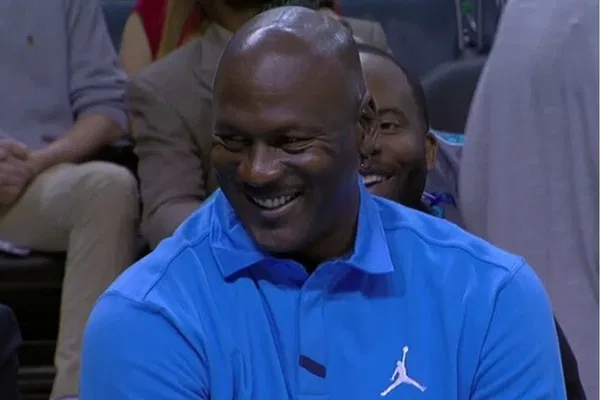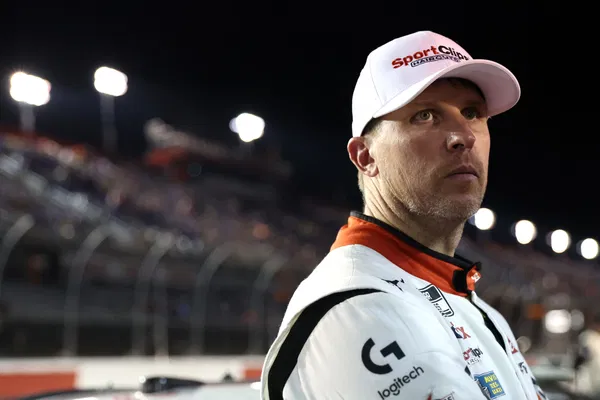In mid-March, Denny Hamlin of Joe Gibbs Racing claimed victory at the NASCAR Cup Series race held at Bristol Motor Speedway. At the time, this win was just one of three during Hamlin’s regular 26-race season, and it was initially seen as a routine triumph. However, the narrative around this win drastically shifted when Toyota, Hamlin’s manufacturer, self-reported a violation tied to the race. This violation, which had gone unnoticed for over five months, would ultimately have serious repercussions for Hamlin and his No. 11 team.
The issue came to light when Toyota mistakenly rebuilt the engine from Hamlin’s race-winning car before NASCAR could conduct its required post-race inspection. Although no competitive advantage was gained from this oversight, it was still a clear breach of the NASCAR Rule Book, specifically sections 14.7.1.E&F and 14.7.1.1.B&E. The rule violations triggered significant penalties for Hamlin, who faced a harsh punishment for a mistake he didn’t personally make.
Hamlin’s penalties were severe. He lost 10 crucial playoff points and had 75 regular-season points stripped away. Before the penalty, Hamlin had accumulated 21 playoff points from his three wins and six stage victories during the regular season. But after the penalty, this total dropped to just 11. The punishment also caused him to slide down the regular-season standings, moving from fourth to seventh place, which carried additional consequences. With the drop, Hamlin only earned four extra playoff points instead of the seven he would have gained had he stayed in fourth place. In total, the penalty cost Hamlin 13 playoff points, not just the initial 10.
As the NASCAR playoffs began, all championship-eligible drivers had their points reset to 2,000, with their playoff points added to that base score. Due to the infraction, Hamlin started the postseason with 2,015 points instead of the 2,028 he could have had without the penalty. This reduction could prove critical as playoff points play a vital role in determining whether a driver advances through the postseason rounds, potentially placing Hamlin at a disadvantage in his pursuit of the championship.
But the impact of Hamlin’s penalty didn’t stop with him—it also had ripple effects on other drivers. His drop from fourth to seventh in the regular-season standings allowed three other drivers to move up in the rankings. Joe Gibbs Racing teammate Christopher Bell moved from fifth to fourth, Hendrick Motorsports’ William Byron rose from sixth to fifth, and Team Penske’s Ryan Blaney advanced from seventh to sixth. With these improved standings, each of these drivers gained an additional playoff point, enhancing their chances in the postseason.
This seemingly isolated penalty could influence the playoffs in ways that extend beyond Hamlin’s own fate. For instance, if a scenario arises where Blaney and his teammate Joey Logano are tied in points at the end of the round of 12, the tiebreaker would decide who advances to the round of 8. If Blaney holds the tiebreaker due to a better top finish, he would move forward. However, without the extra playoff point he gained from Hamlin’s penalty, it could have been Logano who advanced instead, altering the playoff field entirely.
While this scenario may seem unlikely, NASCAR has a history of playoff spots being determined by narrow margins, sometimes by as little as a single point or a tiebreaker. This means it’s entirely possible that a driver who had no involvement in Hamlin’s penalty could find themselves eliminated from the postseason due to the far-reaching consequences of this months-old infraction.
This situation highlights the complexity and unpredictability of NASCAR’s playoff system, where penalties can reverberate throughout the field, affecting more than just the driver directly involved. As the playoffs continue, Hamlin’s penalty could still play a pivotal role in determining which drivers advance and which ones are eliminated. The outcome of the championship may be shaped not only by on-track performance but also by this unforeseen, months-old mistake that has already reshuffled the postseason standings.




